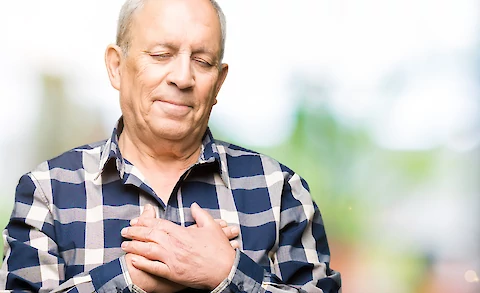
A heart attack can be a scary and life-changing experience, especially for senior citizens. Recovering after such an incident requires lifelong lifestyle modifications to prevent further complications, including atrial fibrillation (AFib). This guide serves as a resource to seniors and their loved ones who are preparing to adjust their lifestyles post-heart attack by understanding AFibs risks, treatment options available, and preventative measures you can take.
What is Atrial Fibrillation?
Atrial fibrillation (AFib) is an irregular heartbeat or arrhythmia that usually occurs when nerve signals in the heart become erratic. When this happens, the two upper chambers of your heart (the atria) beat faster and flutter instead of beating partially and regularly as they should. AFib can lead to blood clots, stroke, congestive heart failure, and other dangers if not treated correctly.
The most common cause of AFib is coronary artery disease. Other contributing factors may include high blood pressure, smoking, obesity, nutritional deficiencies, thyroid disorders, certain medications, and alcohol intake. It's also believed that genetics plays a role in some cases, as certain hereditary conditions may increase one's risk for AFib.
Symptoms vary from individual to individual, with chest discomfort being the most commonly reported symptom. Other symptoms may include palpitations (fluttering in chest), fatigue/shortness of breath during exercise/activity levels dropping off, etc. The only way to diagnose atrial fibrillation definitively is through an electrocardiogram (EKG). Be proactive by talking with your physician about any changes you've noticed since having a heart attack so they can run necessary tests accordingly and flag potential health concerns early on while they're still treatable.
What Are the Treatment Options?
Treatment options for atrial fibrillation depend on how severe the condition is and what underlying causes may contribute to it. Common treatment methods include:
- Ablation/pulmonary vein isolation (PVI)
- Surgical interventions
- Cardiac rhythm devices such as pacemakers or implantable cardioverter-defibrillators (ICDs)
Medications may also be used. They can help slow the rate at which your heart beats and regulate any other symptoms related to AFib that you are experiencing. Your doctor may suggest these first to determine whether they're effective before moving on to more extensive treatments involving surgery or installing a device into your chest.
How Can I Prevent Atrial Fibrillation?
Maintaining a healthy lifestyle is the best way to prevent AFib, particularly for senior citizens. Your doctor may recommend:
- Keeping cholesterol low with diet and/or medication
- Controlling blood pressure levels through maintaining an active lifestyle, quitting smoking if applicable, and limiting both caffeine and alcohol intake
- Maintaining a balanced diet high in fiber while avoiding processed foods
- Incorporating 30 minutes of regular exercise into your day (e.g., walking, swimming, jogging)
- Monitoring any weight changes that occur as this can increase AFib risks due to cardiovascular strain
Need Help Support a Healthy Lifestyle at Home?
Atrial fibrillation can be very dangerous, so it's essential to remain vigilant of any symptoms that may occur after a heart attack. An irregular heartbeat may not seem pertinent, but diagnosing AFib early on ensures one receives the best treatment options available while minimizing potential risks. Talk to your doctor today about what steps you can take to maintain an active and healthy lifestyle post-heart attack.
If you need help maintaining a healthy lifestyle at home, reach out to Senior Helpers of St. Petersburg. We offer in-home support for seniors in St. Petersburg, Gulfport, South Pasadena, St. Pete Beach, and Treasure Island. We can help empower seniors to age in place, including helping with preparing healthy meals and assisting with an active lifestyle. Schedule a free in-home consultation with us today.